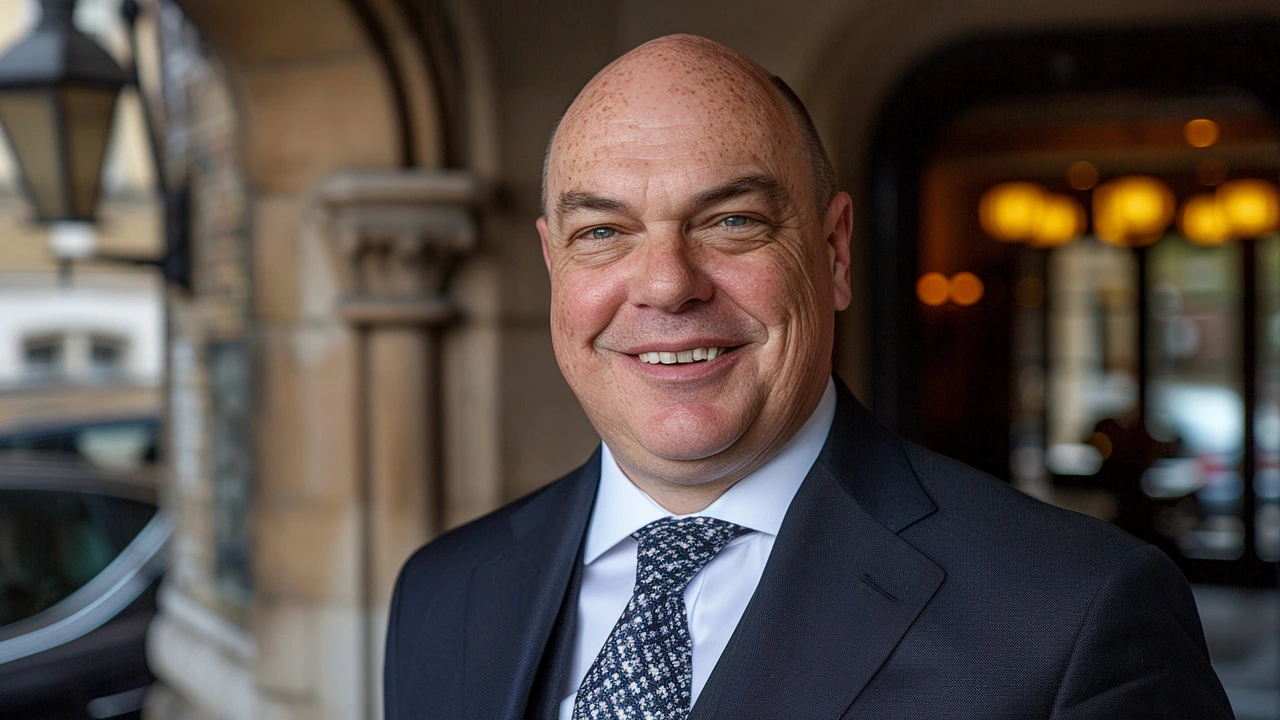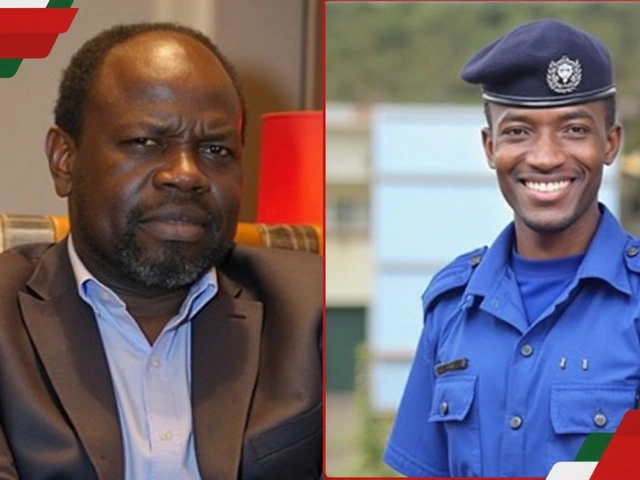Mike Lynch's Long Legal Battle: The Road to Exoneration
Mike Lynch, a prominent figure in the tech world as the founder and former CEO of Autonomy, faced a long and arduous legal battle that ended in a significant acquittal by a San Francisco jury. Accusations that Lynch had artificially inflated Autonomy's revenues prior to its $11 billion acquisition by Hewlett-Packard in 2011 led to his extradition to the United States. The legal drama surrounding his case has not only drawn attention to Lynch's tactics and business strategies but has also sparked a broader discussion on the fairness of international extradition treaties, particularly between the UK and the US.
The magnitude of Lynch's case cannot be overstated. He was facing up to 20 years in prison had he been found guilty. Yet, the jury acquitted him of all charges, emphasizing his role as a tech visionary skilled in creating successful startups, rather than someone engaged in deceptive accounting practices. This distinction was crucial in the defense strategy employed by Lynch's legal team, who painted a picture of a man dedicated to technological innovation and entrepreneurship.
The Acquisition: A Shaky Ground for Allegations
The allegations against Lynch stemmed from HP's takeover of Autonomy in 2011, a deal valued at $11 billion. Shortly after the acquisition, HP claimed that it had been misled about Autonomy's financial health, alleging that Lynch and his colleagues had engaged in fraudulent practices. HP's accusations led to a significant write-down and a protracted legal fight that kept both companies in the spotlight for years.
During the trial, Lynch's defense hammered home the point that Autonomy had been a UK-listed, UK-regulated, and UK-audited company. This raised a fundamental question: should Lynch have been tried in the UK instead of the US? The Serious Fraud Office (SFO) in the UK had investigated the matter but dropped the case in 2015, adding another layer of complexity to the legal conundrum. Lynch’s defense argued that his extradition to the US was unnecessary and unjust, given that the alleged misconduct had taken place within the UK's jurisdiction.
The Extradition Treaty: A One-Sided Affair?
Lynch's case has ignited a fiery debate over the 2003 extradition treaty between the UK and the US, signed during Tony Blair's tenure as Prime Minister. Critics of the treaty have long argued that it favors the United States, with more individuals being extradited from the UK to the US than vice versa. The treaty has been a contentious issue, with numerous calls for its renegotiation or repeal due to the perceived imbalance and unfairness it creates.
Supporters of Lynch's case contend that his extradition is a prime example of how skewed the treaty is. They argue that Lynch, as a British citizen who allegedly committed a crime on British soil, should have been tried in the UK. The fact that the SFO had dropped its investigation further complicates matters, leading to questions about the integrity and fairness of cross-border legal proceedings.
The Broader Implications: What Can Be Learned?
The exoneration of Mike Lynch has broader implications for the tech industry and international legal frameworks. First and foremost, it underscores the importance of fair and balanced extradition treaties that do not disproportionately favor one country over another. Legal experts and policymakers may need to revisit the 2003 treaty to ensure that it is equitable and does not infringe on the rights of the accused. Moreover, Lynch's case serves as a cautionary tale for tech entrepreneurs and companies involved in cross-border mergers and acquisitions (M&As). The due diligence process, transparency, and adherence to financial regulations are more critical than ever in an increasingly globalized business world. Companies must be meticulous in their financial reporting and corporate governance to avoid potential legal pitfalls and maintain investor confidence.
The Case for Better Regulatory Oversight
The Lynch case also highlights the need for robust regulatory oversight. Regulatory bodies in both the UK and the US must work together more effectively to prevent and address potential financial misconduct. While the SFO dropped its investigation into Autonomy, the US proceeded with its prosecution, leading to a convoluted legal battle that spanned several years. A more coordinated approach between regulatory agencies could streamline the process and ensure that justice is served more efficiently.
Navigating Uncharted Waters: Tech Entrepreneurship in a Legal Maze
For tech entrepreneurs like Lynch, the road to success is often fraught with legal challenges and uncertainties. The rapidly evolving nature of the tech industry means that laws and regulations frequently lag behind, creating a complex landscape for startups and established companies alike. Lynch's legal ordeal serves as a stark reminder of the potential risks involved in pushing the boundaries of innovation and entrepreneurship.
Entrepreneurs must be proactive in understanding the legal and regulatory environment in which they operate. This includes seeking legal counsel when necessary, adhering to best practices in financial reporting and corporate governance, and staying informed about changes in laws and regulations that may impact their business. Fostering a culture of transparency and accountability can go a long way in mitigating legal risks and ensuring long-term success.
The Human Element: A Personal Toll
While the legal and business implications of Mike Lynch's case are significant, it is essential to acknowledge the personal toll such a protracted legal battle can take on an individual. Lynch's reputation, career, and personal life were undoubtedly affected by the years-long ordeal. The stress and uncertainty of facing potential imprisonment and the impact on his family and personal relationships cannot be understated. This human element is often overlooked in high-profile legal cases, yet it is a crucial aspect that deserves recognition. The emotional and psychological strain experienced by individuals in Lynch's position underscores the need for legal proceedings to be conducted with fairness and empathy.
The Road Ahead
With his acquittal, Mike Lynch can now begin to rebuild his life and career. The tech industry will be watching closely to see what his next steps will be. Will he return to mentoring and investing in startups, or will he seek to clear his name further through additional legal action or public statements? Only time will tell. One thing is certain: Lynch's case has left an indelible mark on the tech world and the international legal community. It serves as a potent reminder of the intricate interplay between business, law, and individual rights in our increasingly interconnected world.






This case is a wake-up call for every founder doing cross-border deals. The legal system isn't built for tech innovation-it's built for bureaucracy. Lynch wasn't a criminal, he was a visionary caught in a system that doesn't understand disruption.
UK regulators dropped the case for a reason. The US prosecuting him feels like legal imperialism.
The human cost here is staggering. Imagine losing years of your life to a courtroom battle while your reputation gets shredded in the media. No amount of acquittal fixes that.
I’ve worked with UK tech startups. The SFO dropping the case wasn’t a mistake-it was common sense. Autonomy was audited by PwC UK, listed on the LSE, and operated under UK law. Trying Lynch in the US is like prosecuting a French chef in Japan for using too much butter. The jurisdiction makes zero sense.
The extradition treaty is a weapon disguised as law. It’s not about justice. It’s about power. The US has been using this to bully foreign entrepreneurs for years. Lynch was just the latest high-profile target.
It is imperative to acknowledge that the integrity of international financial regulation must be upheld through consistent and equitable legal frameworks. The disparity in prosecutorial jurisdiction undermines the principles of due process and raises profound concerns regarding the sovereignty of national regulatory bodies.
YESSSSS 🙌 Lynch won! This is what happens when you fight back against corporate giants who try to bury you after they mess up their own due diligence. HP bought Autonomy for $11B and then blamed the founder when it didn’t work out? 😤
The whole thing is wild honestly the UK just let it go and then the US comes in like they own the world i mean seriously how many countries can just pick up someone and drag them across the ocean for a case that was already dropped
HP claimed they were misled. Funny how they didn’t notice the financials were inflated during a $11B due diligence. Maybe they should’ve hired someone who could read a balance sheet instead of a PR team.
This is why India needs to stop letting its tech talent get lured into Western legal traps. Lynch is a legend. The system tried to crush him and failed. Stay sharp, stay legal, stay smart 💪
Finally someone stood up to the big boys 🎉 Lynch didn’t cheat-he just believed in the future more than anyone else. HP didn’t get a company, they got a vision they didn’t know how to handle.
People think money is the problem but its not. Its about who controls the story. HP made the story about fraud. Lynch made it about freedom. He won the story.
Of course the US prosecuted him. They needed a scapegoat after their own banks crashed in 2008. Every time they need to look busy, they pick a foreign tech guy.
Lynch was never the problem HP was the problem 🤡 They paid too much then blamed the seller. Classic move. The system is rigged but he still won
this is all part of the deep state plan to silence innovators who dont play by their rules. the sfo dropped it because they were paid off. hp is connected to the cia and the extradition treaty is just a tool to steal tech from other countries. i saw it on a forum once and now i know its true
This isn’t just a legal case. This is a WAR. A war between the old guard and the new. Lynch was the new. HP was the old. And the old tried to bury him alive. He didn’t just walk out of court-he exploded out of it. This is the kind of story that changes generations.
Honestly the whole thing is overrated. I mean sure he got acquitted but he still lost 10 years of his life. Also the fact that he was extradited under a treaty signed under Blair? That’s just sad. The US has more lawyers than actual justice. It’s all about billable hours
I think this case shows how fragile trust is in global business. Even if you’re innocent, the perception matters. Lynch’s name was dragged through the mud for years. No matter the verdict, the damage is done. We need better systems-not just legal ones, but cultural ones too.
The acquittal does not equate to moral exoneration. One must distinguish between legal technicalities and ethical responsibility. The burden of proof was met by the defense, yet the underlying corporate governance failures remain unaddressed.